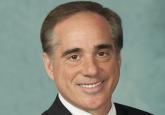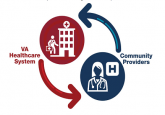Despite the emerging consensus, a number of voices expressed concern about the impact of the Commission on Care’s proposals changes. A group of unions and professional organizations that represent VA employees (Association of VA Psychologist Leaders, Association of VA Social Workers, Nurses Organization of Veterans Affairs, Veterans Affairs Physician Assistant Association, American Federation of Government Employees, National Federation of Federal Employees, National Association of Government Employees, National Nurses United, the American Psychological Association, and National Association of Social Workers) expressed its concerns in a letter submitted to the House panel. “As organizations comprised of and representing health care practitioners, researchers, educators, administrators and personnel devoted to serving veterans, we have serious reservations about the report’s major recommendation to replace the current VHA with a new entity, to be known as the VHA Care System.” The letter argues that the proposed VHA Care System “disassembles one of the most effective, innovative features of current VHA care—the Primary Care/Mental Health Integration approach.”
In his Senate testimony, Secretary McDonald also expressed concern with the potential cost of some of the Commission on Care proposals. Currently the VA is spending $13.5 billion in community care. According to McDonald, the VA would need $17 billion to make the upgrades it outlined in its October Plan to Consolidate Community Care, but he warned “the Commission on Care plan would be much more expensive than that.” More importantly, McDonald insisted, the VA should retain primary responsibility for the care of veterans. "We believe the VA needs to be the care coordinator," he insisted.
Another concern echoed by many of the commenters was the proposal to create an oversight board to provide governance, set long-term strategy, and direct and oversee reform. According to its critics, the proposal not only would undermine the authority of VA leadership, but could reduce congressional oversight as well. “NOVA strongly opposes giving an outside board—made up of civilian health care executives who may have never set foot into a VA facility—the authority to make decisions about the care and services provided America’s veterans,” argued Sharon Johnson, MSN, RN, president of the Nurses Organization of Veteran Affairs.
Mark Takata (D-Calif.) the ranking minority member of the House committee also expressed concern that the changes could impact VA clinicians’ access to high quality research, and clinician training. “The Commission on Care recommendations might in fact weaken the VA health care system,” Takata argued. “Proposals to funnels funding to private contractors and for profit care will take desperately needed resources away from our veterans and should be immediately rejected.... We cannot view expanded choice or the private sector as the panacea for solving the challenges the VA faces.”


